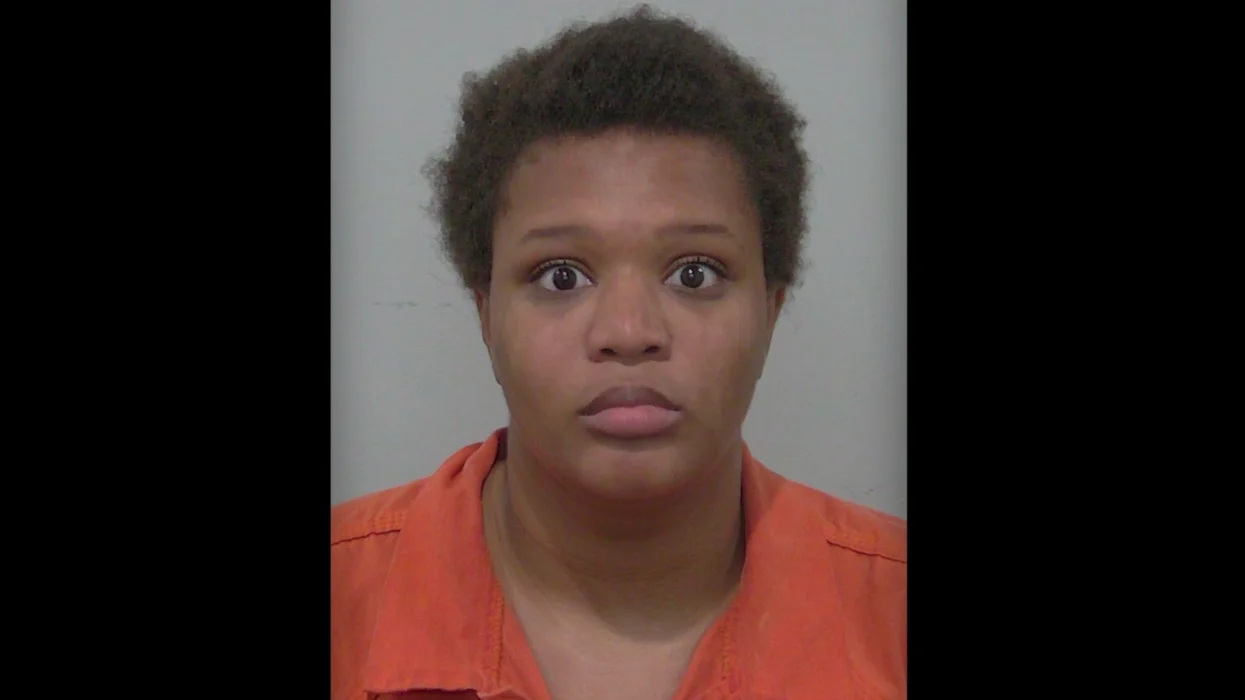© 2025 Blaze Media LLC. All rights reserved.
Fatally Flawed': CA Gov. Vetoes Democratic Bill That Would Have Protected Illegals From Fed Immigration Checks
October 01, 2012
"a human rights crisis."

California Gov. Jerry Brown had a busy weekend, as he acted on over 100 pieces of legislation. Among the provisions he signed into law, Brown banned reparative therapies intended to turn gay youths straight. While this law is certainly controversial, so is one of the bills he vetoed -- a measure that would have shielded some illegal immigrants from federal checks on their status.
The bill, which was officially called the TRUST Act and dubbed an "anti-Arizona" effort by supporters, would have prevented local authorities from honoring federal requests for detention of illegals, unless the individuals were charged or convicted of serious or violent felonies, Reuters reports. The Huffington Post provides more details about the measure's intended purpose:
The TRUST Act, which was originally introduced by state Assemblyman Tom Ammiano, would have limited the state's law enforcement's interactions with federal immigration enforcement efforts. It specifically would have restricted California's cooperation in the Secure Communities program, which relies on local police to hold undocumented immigrants detected upon arrest until Immigration and Customs Enforcement can pick them up.Critics of Secure Communities, which they refer to as the less-euphemistic "SCOMM," argue the program hurts local communities by making immigrants fearful of police, by netting low-level and non-criminals, and by clogging jails, at a high cost, with individuals whom police would otherwise let go.
States aren't actually allowed to leave the program, although they were originally told they would be, and some have attempted to do so. But they can legally ignore requests, called detainers, to hold immigrants for ICE. The TRUST Act would release undocumented immigrants despite requests from ICE if they didn't meet certain criteria based on their record and the severity of their crime.
The legislation -- and the debate as a whole -- presents a compelling conundrum. While many may support deporting illegal immigrants, the situation gets complicated, specifically when considering federal-state issues and the power of the U.S. government.
While states were initially told they could opt out of the program, they have not yet been allowed to do so -- a potential issue for those who support states' rights (some politicians, though, have passed restrictions, similar to the TRUST Act that seek to limit the federal government's powers on the immigration front). Contrary to these issues, removing many of the crimes from the list that would flag illegals for federal scrutiny presents important issues of safety worth consideration.

If Brown had signed the bill, a decrease in deportation proceedings among illegals would have been, based on the new parameters, potentially evident. While supporters pushed for the TRUST Act, claiming that it would have protected minorities from the racial profiling they believe is at the center of the Arizona immigration law, some wording within the measure led the governor to reject it.
For Brown, it was the narrow portion of the bill that exempt all crimes aside from serious or violent felonies. In qualifying his veto, the governor explained that, while he supports immigration reform, he does not believe in protecting those who have engaged in other crimes -- drug and weapons trafficking, child abuse and other similar infractions. As a result, he said that the measure brought before him was "fatally flawed."
While he had concerns about some of the more serious crimes that would go unchecked under the TRUST Act, he did make a statement about the role of the federal government in cases of less serious crimes. He said, "federal agents shouldn't try to coerce local law enforcement officers into detaining people who've been picked up for minor offenses and pose no reasonable threat to their community."
Still, Brown couldn't support the bill in its current form.
"I am unable to sign this bill as written," Brown said, reiterating his stance on the matter. "I believe it's unwise to interfere with a sheriff's discretion to comply with a detainer issued for people with those kinds of troubling criminal records."

It didn't take long for immigrants' rights groups to decry Brown's stance on the matter, claiming that he was putting illegals at risk of discrimination and not adequately considering the immigration situation in California.
"By vetoing the TRUST Act Governor Brown has failed California's immigrant communities, imperiling civil rights and leaving us all less safe," Pablo Alvarado, executive director of the National Day Laborer Organizing Network, said in a statement about the veto. "The president's disastrous Secure Communities program is replicating Arizona's model of immigration enforcement nationally, causing a human rights crisis."
Reshma Shamasunder, who heads the California Immigrant Policy Center, echoed the same sentiment, claiming that Brown's veto has "doomed thousands of immigrants." In addition to domestic violence survivors, Shamasunder laments the fact that minor offenders have been "separated from their loved ones and detained unjustly in local jails."
One of the central arguments that opponents like Shamasunder wage is that the program is discriminatory against illegals who report crimes -- like domestic violence -- that have been committed against them. Rather than receiving assistance in these instances, immigrants' rights workers claim that some illegals are punished unjustly.
Despite what detractors might claim is anti-immigrant sentiment on the part of Brown, the governor is also receiving praise after he signed a separate bill that will allow hundreds of thousands of young illegals the opportunity to get driver's licenses. If these individuals qualify for President Barack Obama's new federal work permit program, then they will be able to obtain the documentation needed for the licenses.
"Gov. Brown believes the federal government should pursue comprehensive immigration reform with a pathway to citizenship," said Brown's spokesman Gil Duran, according to The Los Angeles Times. "President Obama has recognized the unique status of these students, and making them eligible to apply for driver's licenses is an obvious next step."
As TheBlaze has previously reported, under the new Obama administration policy, eligible applicants must have arrived in the United States before their 16th birthday, be 30 years old or younger, lived in the U.S. for at least five years and be in school, graduated or served in the military. They must not have been convicted of a felony, three misdemeanors or one “significant” misdemeanor such as driving under the influence or gun or sex charges, according to the Associated Press.
--
Related:
Want to leave a tip?
We answer to you. Help keep our content free of advertisers and big tech censorship by leaving a tip today.
Want to join the conversation?
Already a subscriber?
Billy Hallowell is a digital TV host and interviewer for Faithwire and CBN News and the co-host of CBN’s "Quick Start Podcast."
Billy Hallowell
Billy Hallowell is a digital TV host and interviewer for Faithwire and CBN News and the co-host of CBN’s "Quick Start Podcast."
more stories
Sign up for the Blaze newsletter
By signing up, you agree to our Privacy Policy and Terms of Use, and agree to receive content that may sometimes include advertisements. You may opt out at any time.
Related Content
© 2025 Blaze Media LLC. All rights reserved.
Get the stories that matter most delivered directly to your inbox.
By signing up, you agree to our Privacy Policy and Terms of Use, and agree to receive content that may sometimes include advertisements. You may opt out at any time.





